Latest
2024
Dec
Nov
Oct
Sep
Aug
Jul
Jun
May
Apr
Mar
Feb
Jan
2023
Dec
Nov
Oct
Sep
Aug
Jul
Jun
May
Apr
Mar
Feb
Jan
2022
Dec
Nov
Oct
Sep
Aug
Jul
Jun
May
Apr
Mar
Feb
Jan
2021
Dec
Nov
Oct
Sep
Aug
Jul
Jun
May
Apr
Mar
Feb
Jan
2020
Dec
Nov
Oct
Sep
Aug
Jul
Jun
May
Apr
Mar
Feb
Jan
2019
Dec
Nov
Oct
Sep
Aug
Jul
Jun
May
Apr
Mar
Feb
Jan
2018
Dec
Nov
Oct
Sep
Aug
Jul
Jun
May
Apr
Mar
Feb
Jan
2017
Dec
Nov
Oct
Sep
Aug
Jul
Jun
May
Apr
Mar
Feb
Jan
2016
Dec
Nov
Oct
Sep
Aug
Jul
Jun
May
Apr
Mar
Feb
Jan
2015
Dec
Nov
Oct
Sep
Aug
Jul
Jun
May
Apr
Mar
Feb
Jan
2014
Dec
Nov
Oct
Sep
Aug
Jul
Jun
May
Apr
Mar
Feb
Jan
2013
Dec
Nov
Oct
Sep
Aug
Jul
Jun
May
Apr
Mar
Feb
Jan
2012
Dec
Nov
Oct
Sep
Aug
Jul
Jun
May
Apr
Mar
Feb
Jan
2011
Dec
Nov
Oct
Sep
Aug
Jul
Jun
May
Apr
Mar
Feb
Jan
2010
Dec
Nov
Oct
Sep
Aug
Jul
Jun
May
Apr
Mar
Feb
Jan
2009
Dec
Nov
Oct
Sep
Aug
Jul
Jun
May
Apr
Mar
Feb
Jan
2008
Dec
Nov
Oct
Sep
Aug
Jul
Jun
May
Apr
Mar
Feb
Jan
2007
Dec
Nov
Oct
Sep
Aug
Jul
Jun
May
Apr
Mar
Feb
Jan
2006
Dec
Nov
Oct
Sep
Aug
Jul
Jun
May
Apr
Mar
Feb
Jan
2005
Dec
Nov
Oct
Sep
Aug
Jul
Jun
May
Apr
Mar
Feb
Jan
2004
Dec
Nov
Oct
Sep
Aug
Jul
Jun
May
Apr
Mar
Feb
Jan
2003
Dec
Nov
Oct
Sep
Aug
Jul
Jun
May
Apr
Mar
Feb
Jan
2002
Dec
Nov
Oct
Sep
Aug
Jul
Jun
May
Apr
Mar
Feb
Jan
2001
Dec
Oct
Sep
Aug
Jul
Jun
May
Apr
Mar
Feb
Monday, February 25, 2019
Music Week
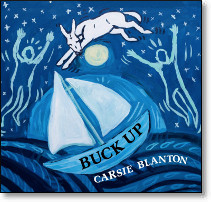 |
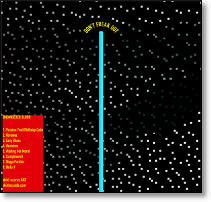 |
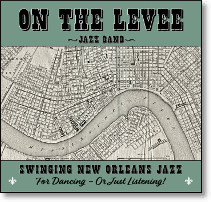 |
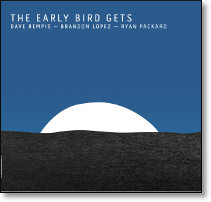 |
 |
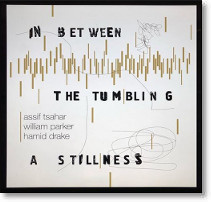 |
Music: current count 31174 [31145] rated (+29), 252 [249] unrated (+3).
So-so week, rated count actually a good deal more than I expected, given all the distractions. Since I went to weekly review dumps, I guess that means that the last Monday of the month is the closing date for the archive Streamnotes (February 2019) -- posted at the same time as this Music Week. February's record total of 123 (91 new) is quite a bit less than January's 201 (153 new).
Still listening more to 2018 than 2019 records (15-4 below), even a couple hitherto unnoticed 2017 releases. Should probably write a longer intro, but not feeling it at the moment.
New records reviewed this week:
- Jakob Anderskov: Mysteries (2017 [2018], ILK): [r]: B+(**)
- Julian Argüelles: Tonadas (2017 [2018], Edition): [r]: B+(**)
- Rafiq Bhatia: Breaking English (2018, Anti-): [r]: B+(**)
- Carsie Blanton: Buck Up (2019, So Ferocious): [r]: A-
- Martin Blume/Wilbert De Joode/John Butcher: Low Yellow (2016 [2018], Jazzwerkstatt): [r]: B+(**)
- Dinosaur: Wonder Trail (2018, Edition): [r]: B
- Endangered Blood: Don't Freak Out (2018, Skirl): [r]: A-
- Hot 8 Brass Band: On the Spot (2017, Tru Thoughts): [bc]: B+(**)
- Hot 8 Brass Band: Take Cover (2019, Tru Thoughts, EP): [bc]: B+(*)
- Ohmme: Parts (2018, Joyful Noise): [r]: B+(**)
- On the Levee Jazz Band: Swinging New Orleans Jazz (2018, Big Al): [bc]: A-
- Pilgrims [John Wolf Brennan/Tony Majdalani/Marco Jencarelli]: Oriental Orbit (2017, Leo): [r]: B+(*)
- Chris Potter: Circuits (2019, Edition): [r]: B-
- RAM: RAM 7: August 1791 (2018, Willibelle): [r]: B
- Dave Rempis/Brandon Lopez/Ryan Packard: The Early Bird Gets (2018 [2019], Aerophonic): [cd]: A-
- Valee: GOOD Job, You Found Me (2018, GOOD Music, EP): [r]: B+(**)
- Kate Vargas: For the Wolfish & Wandering (2018, self-released): [r]: B+(*)
Recent reissues, compilations, and vault discoveries:
- Gboyega Adelaja: Colourful Environment (1979 [2018], Odion Livingstone): [r]: B+(**)
- African Scream Contest 2 (1970s [2018], Analog Africa): [bc]: B+(***)
- Dur Dur of Somalia: Volume 1, Volume 2, & Previously Unreleased Tracks (1986-87 [2018], Analog Africa, 2CD): [r]: B+(***)
- Orhestre Abass: De Bassari Togo (1972 [2018], Analog Africa, EP): [r]: B+(***)
Old music:
- African Scream Contest: Raw & Psychedelic Afro Sounds From Benin & Togo 70s (1970s [2008], Analog Africa): [r]: A-
- Carsie Blanton: Ain't So Green (2005, self-released): [r]: B+(***)
- Carsie Blanton: Idiot Heart (2012, self-released): [r]: B+(*)
- Carsie Blanton: Not Old, Not New (2014, So Ferocious): [r]: B+(**)
- Carsie Blanton: So Ferocious (2016, So Ferocious): [r]: B+(*)
- Andrew D'Angelo Trio: Skadra Degis (2007 [2008], Skirl): [bc]: B+(***)
- Andrew D'Angelo Trio: Norman (2015, self-released): [bc]: B+(***)
- Endangered Blood: Work Your Magic (2012 [2013], Skirl): [r]: B+(***)
- Kitchen Orchestra/Alexander Von Schlippenbach: Kitchen Orchestra With Alexander Von Schlippenbach (2013, Whats Cooking): [r]: B+(*)
Unpacking: Found in the mail last week:
- Atomic: Pet Variations (Odin)
- Lyn Stanley: London Calling: A Toast to Julie London (A.T. Music)
- Carol Sudhalter Quartet: Live at Saint Peter's Church (Alfa Projects)
- Assif Tsahar/William Parker/Hamid Drake: In Between the Tumbling a Stillness (Hopscotch) [A-]
Sunday, February 24, 2019
Weekend Roundup
When I started this exercise, I reassured myself that I would just go through the motions, collecting a few notes that I may wish to refer back to after the 2020 election. While I've written very little on it, I've thought a lot more about my four-era synopsis of American history, and I'm more convinced than ever that the fourth -- the one that started in 1980 with Ronald Reagan -- ends definitively with Donald Trump in 2020. I doubt I'll ever manage to write that book, but it's coming together pretty clearly in my mind. I'll resist the temptation to explain how and why. But I will offer a couple of comments on how this affects the Democratic presidential field. For starters, it is very important that the Democrats nominate someone who is not closely tied to Reagan-era Democratic politics, which means the Clintons, Obama, and Joe Biden. Those politicians based their success on their ability to work with Reagan-era constraint and tropes, and those have become liabilities.
It's time for a break, which could mean an older candidate with clear history of resisting Clinton-Obama compromises (like Bernie Sanders) or a younger candidate who's simply less compromised. Second point is that Republicans have become so monolithically tied to Trump, while Trump has become so polarizing, that no amount of "moderation" is likely to gain votes in the "middle" of the electorate. On the other hand, these days "moderation" is likely to be seen as lack of principles and/or character. In this primary season I don't see any reason not to go with whichever Democrat who comes up with the best platform. Still, there is one trait I might prefer over a better platform, which is dedication to advancing the whole party, and not just one candidate or faction.
I don't intend to spend much time or space on candidates, but I did note Bernie Sanders' joining the race below, a piece on his foreign policy stance (which has more to do with the shortcomings of other Democrats), as well as a couple of policy initiatives from Elizabeth Warren -- who's been working hard to establish her edge there. I've been running into a lot of incoherent spite and resentment against Sanders, both before and since his announcement, often from otherwise principled leftists, especially directed against hypothetical "purists" who disdain other "progressives" as not good enough. I'm far enough to the left that no one's ever good enough, but you make do with what you can get. I sympathize with Steve M.'s tweet:
Everyone, pro and anti Bernie: Just grow the fuck up. He's in the race. Vote for him, don't vote for him, let the process play out, then fight like hell to enact whoever wins the nomination. STOP DOING 2016 BATTLE REENACTMENTS.
Of course, if Hillary throws her hat in, all bets are off.
Some scattered links this week:
Matthew Yglesias:
Jamelle Bouie: Sanders has an advantage, and it's not about economics: "He has put forward a foreign policy vision that pits democratic peoples everywhere against illiberalism at home and abroad." I wish he was better still -- Laura blew up about some comments he made the other day on Venezuela, but he's not as kneejerk reflexive as most Democrats, or as gullible when someone pitches a war as humanitarian -- but he's closer to having a framework for thinking about America's imperial posture than almost anyone with a chance to do something about it. By far the biggest risk Democrats are running is the chance they may (as Hillary was) be tarred as the war party.
Ted Galen Carpenter: How NATO pushed the US Into the Libya fiasco: I think this was pretty obvious at the time, although once the US intervened, as it did, the war quickly became something all sides could blame on America -- particularly as the US had a long history that had only grown more intense under Bush and Obama of absent-minded intervention in Islamic nations. Obama later said that he regretted not the intervention per se but not planning better for the aftermath -- an indication of lack of desire or interest, not that Bush's occupation of Iraq turned out any better. (Of course, the fiasco in Iraq was also excused as poorly planned, but no one doubted the interest and excitement of the Bremer period as Americans tried to refashion Iraq in the image of, well, Texas.) One point that could be better explained is that Europe (especially France and Italy) had long-standing commercial ties to Libya, which America's anti-Qaddafi tantrums (at once high-handed, capricious, arbitrary, and indifferent to consequences) had repeatedly undermined. After NATO fell in line behind the US in Afghanistan and (for the most part) Iraq, Europeans felt America owed them something, and that turned out to be Libya. That all these cases proved disappointing should prove that NATO itself was never the right vehicle for dealing with world or regional problems.
Ben Freeman: US foreign policy is for sale: "Washington think tanks receive millions of dollars from authoritarian governments to shape foreign policy in their favor." Not just authoritarian governments, although you could argue that the most obvious exception, Israel, qualifies. For that matter it seems likely that many other nations (democracies as well as dictatorships) are every bit as active in buying American foreign policy favors -- so much so that singling out the "authoritarians" is just a rhetorical ploy. Original link to TomDispatch. By the way, in the latter, Tom Engelhardt quotes from Stephen Walt's new book, The Hell of Good Intentions: America's Foreign Policy Elite and the Decline of US Primacy:
[T]he contemporary foreign policy community has been characterized less by competence and accountability and more by a set of pathologies that have undermined its ability to set realistic goals and pursue them effectively. To put it in the bluntest terms, instead of being a disciplined body of professionals constrained by a well-informed public and forced by necessity to set priorities and hold themselves accountable, today's foreign policy elite is a dysfunctional caste of privileged insiders who are frequently disdainful of alternative perspectives and insulated both professionally and personally from the consequences of the policies they promote.
Although "good intentions" often fail, Walt is being overly generous in accepting them at face value. Up to WWII, US foreign policy was almost exclusively dictated by private interests -- mostly traders and financiers, with an auxiliary of missionaries. WWII convinced American leaders that they had a calling to lead and manage the world, so they came up with a great myth of "good intentions," although those were soon shattered as they embraced slogans like "better dead than red."
Greg Grandin: How the failure of our foreign wars fueled nativist fanaticism: "For nearly two centuries, US politicians have channeled extremism outward. But the frontier is gone, the empire is faltering, and the chickens are coming home to roost." Adapted from Grandin's new book, The End of the Myth: From the Frontier to the Border in the Mind of America.
Had the occupations of Afghanistan and Iraq not gone so wrong, perhaps George W. Bush might have been able to contain the growing racism within his party's rank and file[1] by channeling it into his Middle East crusade, the way Ronald Reagan broke up the most militant nativist vigilantes in the 1980s by focusing their attention on Central America. For nearly two centuries, from Andrew Jackson forward, the country's political leaders enjoyed the benefit of being able to throw its restless and angry citizens -- of the kind who had begun mustering on the border in the year before 9/11 -- outward, into campaigns against Mexicans, Native Americans, Filipinos, and Nicaraguans, among other enemies.
But the occupations did go wrong. Bush and his neoconservative advisers had launched what has now become the most costly war in the nation's history, on the heels of pushing through one of the largest tax cuts in the nation's history. They were following the precedent set by Reagan, who in the 1980s slashed taxes even as he increased the military budget until deficits went sky-high. Yet the news coming in from Iraq, Afghanistan, and elsewhere began to suggest that Bush had created an epic disaster. Politicians and policy intellectuals began to debate what is and isn't torture and to insist that, whatever "enhanced interrogation" was, the United States had a right to do it. Photographs from Abu Ghraib prison showing US personnel cheerfully taunting and torturing Iraqis circulated widely, followed by reports of other forms of cruelty inflicted on prisoners by US troops. Many people were coming to realize that the war was not just illegal in its conception but deceptive in its justification, immoral in its execution, and corrupt in its administration.
Every president from Reagan onward has raised the ethical stakes, insisting that what they called "internationalism" -- be it murderous wars in impoverished Third World countries or corporate trade treaties -- was a moral necessity. But the disillusionment generated by Bush's war on terrorism, the velocity with which events revealed the whole operation to be a sham, was extraordinary -- as was the dissonance. The war, especially that portion of it allegedly intended to bring democracy to Iraq, was said to mark a new era of national purpose. And yet a coordinated campaign of deceit, carried out with the complicity of reporters working for the country's most respected news sources, had to be waged to ensure public support. The toppling of Saddam Hussein was predicted to be a "cakewalk," and US soldiers, according to Vice President Dick Cheney, would "be greeted as liberators." But Cheney still insisted that he needed to put in place a global network of secret torture sites in order to win the War on Terror.
As thousands died and billions went missing, the vanities behind not just the war but the entire post-Cold War expansionist project came to a crashing end. . . .
War revanchism usually takes place after conflicts end -- the Ku Klux Klan after World War I, for example, or the radicalization of white supremacism after Vietnam.[2] Now, though, it took shape while the war was still going on.[3] And border paramilitarism began to pull in not only soldiers who had returned from the war but the veterans of older conflicts.
Notes: [1] Of course, "channeling" racism wasn't something Bush II worried about, after Nixon, Reagan, and Bush I had built their winning presidential campaigns by cultivating it. It was by then part of the Republican brand. [2] What about the Red Scares following both World Wars? Even wars that were definitely won seem to have left a hunger for more, starting with the search for scapegoats. [3] Or should we say, the war abroad dragged on even after most Americans lost interest in or commitment to it?
Alex Isenstadt: Trump rolls out massive corporate-style campaign structure for 2020.
Sarah Kliff: Elizabeth Warren's universal child care plan, extended: More evidence that Warren is running away from the pack in producing serious thinking about and proposals for policy. For another, see: German Lopez: Elizabeth Warren's ambitious plan to fight the opioid epidemic, explained.
Natasha Korecki: 'Sustain and ongoing' disinformation assault targets Dem presidential candidates: "A coordinated barrage of social media attacks suggests the involvement of foreign state actors." I bet not just those scary foreign state names but PACs and slush funds all over the world, any outfit with a cross to bear or an interest to push.
Anna North: The Trump administration is finalizing plans to strip funding from Planned Parenthood.
John Pilger: The war on Venezuela is built on lies. Also related: Timothy M Gill: Why is the Venezuelan government rejecting US food supplies?
We can surely debate the cruelty of Maduro's domestic policies and his inability and unwillingness to seriously combat the economic crisis, perhaps in an effort to benefit his cronies. Yet, Maduro is not incorrect about the U.S.'s disingenuous behavior.
At the same time that the U.S. is portraying itself as a literary protagonist with its supplies situated on the Colombia-Venezuela border, its policies are intensifying hardships for Venezuelan citizens. If it truly wanted to help Venezuelans, it could work through international and multilateral institutions to send aid to Venezuela, push for dialogue, and take some options off the table, namely military intervention.
Above all, the U.S. is currently damaging the Venezuelan economy with its sanctions, and its supplies on the border will do very little to solve the crisis writ large. If sanctions haven't felled governments in Iran or Syria, to name just two examples, it doesn't seem likely that they will fall the Maduro government any time soon. They'll only perpetuate suffering and ultimately generate acrimony towards the country.
The US has put this kind of pressure on nations before, imposing huge popular hardships as punishment for the government's failure to surrender to American interests. Crippling sanctions failed to break North Korea and Cuba. Iraq held out until the US invaded, then resisted until American troops withdrew. Syria descended into a brutal civil war. The US is on a path of goading Maduro into becoming the sort of brutal dictator that Assad became. One might cite Nicaragua as the exception, where the Sandinista regime relinquished power to US cronies, for what little good it did them.
Aaron Rupar:
Trump's pick to chair new climate panel once said CO2 has been maligned like "Jews under Hitler": "William Happer has bizarre, backward views about climate science." At first I was perplexed by why Trump would even bother. Then I found: Robinson Meyer: Democrats establish a new house 'climate crisis' committee: adding another study helps muddy the waters. For more, see two interviews with David Wallace-Wells: one by Meyer: The 3 big things that people misunderstand about climate change; the other by Sean Illing: It is absolutely time to panic about climate change.
The backlash to CNN's decision to hire a GOP operative to coordinate 2020 coverage, explained. Related: Margaret Sullivan: CNN's hiring of a GOP operative as political editor is even worse than it looks.
Stephanie Savell: US counterterrorism missions across the planet: "Now in 80 countries, it couldn't be more global." See the map.
Tim Shorrock: Why are Democrats trying to torpedo the Korea peace talks? That's a good question. You'd think that Democrats would realize by now that the conflicts created and exacerbated by America's global military posture undermine both our own security and any prospects for achieving any of their domestic political goals.
"Democrats should support diplomacy, and remember the most important president in this process is Moon Jae-in, not Donald Trump," Martin said. "Moon's persistent leadership toward reconciliation and diplomacy with North Korea represents the fervent desire of the Korean and Korean-American people for peace. Members of Congress from both parties should understand that and support it, skepticism about Trump and Kim notwithstanding."
Amanda Sperber: Inside the secretive US air campaign in Somalia: "Since Trump took office, figuring out whom the US is killing and why has become nearly impossible."
Emily Stewart:
Banks made record profits last year thanks to the Republican tax cuts.
A Coast Guard officer's arrest is the latest example of the rising problem of right-wing terrorism in America: "Christopher Paul Hasson wrote he was 'dreaming of a way to kill almost every last person on the earth.'"
Matt Taibbi:
Thomas Friedman is right: Pie doesn't grow on trees. Taibbi is the reigning champ of parsing Friedman's blabber, but instead of translating his pie metaphors into English, Taibbi is so overwhelmed by the moment he just transcribes them into page-straddling German nouns. The Friedman piece in question: Is America becoming a four-party state? I would start by sketching this out as a 2x2 chart, labeling the vertical columns Republicans and Democrats. The top row for leaders of both parties who think that all you need is growth (which mostly means pandering to big business); the bottom row for the resentful masses who feel they haven't been getting their fair share of all that growth. I imagine this less as four squares than as a capital-A. The top row is narrowed, the partisan differences marginal, while the bottom row diverges as to who to blame. Friedman pines for the good old days when all elites of both parties had to do was compete with each other to better serve the rich, when no one on either side stooped to pandering to the masses.
Bernie enters the 2020 race with defiant anti-Trump rhetoric.
Does Washington know the difference between dissent and disinformation?
Margaret Talbot: Revisiting the American Nazi supporters of "A Night at the Garden": A seven-minute documentary film nominated for an Oscar, based on a 1939 pro-Nazi rally at Madison Square Garden, and its relevance today.
Jeffrey Toobin: Roger Stone's and Jerome Corsi's time in the barrel: "Why the mismatched operatives matter to Trump -- and to the Mueller investigation."
Alex Ward:
Trump just reversed his decision to pull all US troops out of Syria.
Lindsey Graham: Pulling troops from Syria is "the dumbest fucking idea I've ever heard": dumber than putting them there in the first place? Ward seems to agree with Graham, overlooking the key fact that the US has never had a coherent plan for Syria, making intervention in the war not just stupid but an act of wanton nihilism. For more on Graham (and Trump), see: Susan B Glasser: Audience of one: Why flattery works in Trump's foreign policy.
Trump is exploiting the Venezuela crisis in order to win the 2020 presidential election: "He's using it as a way to label his Democratic challengers as socialists."
Sean Wilentz: Presumed Guilty: A book review of Ken Starr: Contempt: A Memoir of the Clinton Investigation, a reminder of the days when so-called Independent Investigators really knew how to run a witch hunt. Perhaps the new piece of information here is the extreme contempt that Starr and his minions, including Brett Kavanaugh, held for Hillary Clinton.
Li Zhou: The House will vote Tuesday on blocking Trump's national emergency.
Monday, February 18, 2019
Music Week
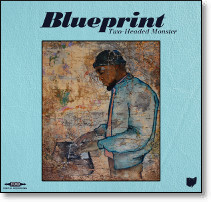 |
 |
 |
 |
 |
 |
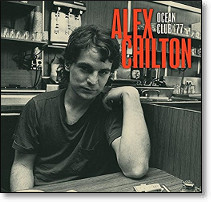 |
Music: current count 31145 [31103] rated (+42), 249 [251] unrated (-2).
Still killing time fiddling with the Pazz & Jop ballots and my EOY Aggregate list. As I'm only selectively adding P&J voters' ballots to the count, I've been perturbing the standings a bit, nudging Cardi B (which I like more) into 4th over Pusha T and Low (which I don't like, although it's far from their worst) down to 10th, under Noname and Parquet Courts (which I do like). Reminds me of something I used to do in my late teens, when I could create my own book lists by mixing real bestseller with other books I was drawn to, including a lot of titles from Pantheon, Grove Press, and Monthly Review Books. The EOY Aggregate remains more rooted in reality, but factoring in my own grades and lists from favored critics and fellow travelers does add a (useful, I think) bias to the thing.
Jazz and Non-Jazz EOY lists have evened out a bit, 63-58, with one late-discovered A- in each this week. Also found my first 2019 non-jazz A-, against 12 jazz A/A- records (although Leyla McCalla's Capitalist Blues could be called non-jazz, and two more of that dozen feature spoken-word poetry).
I pulled a couple old unrated CDs off the shelf this week, now in "old music" below. I should note that French blues collection is part of a series. I also own The Prewar Vocal Jazz Story (1923-45, released 1996), which is in my database as a full A. I gave it a spin last week, and it would be hard to improve on. Had I spent more time with The Prewar Blues Story, I might have concluded it's every bit as authoritative. There are more volumes in the series, all long out of print, but likely to be worthwhile if you stumble upon one. Booklets are pretty good.
After Christgau's Expert Witness, I spent some more time with Alex Chilton reissues -- although I was actually primed with last week's review of Big Star's Live at Lafayette's Music Room. I had reviewed Ocean Club '77 back when it came out, but gave it another shot, and a better grade.
Last week I started replacing my rated albums lists with my review notes. Working methodology is to collect the list in a scratch file and retain it in the notebook, while only swapping the reviews in for the blog post. Still a bit awkward for me, but I trust more timely reviews in smaller than monthly chunks will be more useful.
New records rated this week:
- Asleep at the Wheel: New Routes (2018, Bismeaux): [r]: B+(*)
- Bad Bunny: X 100PRE (2018, Rimas Entertainment): [r]: B+(*)
- J Balvin: Vibras (2018, Universal Latino): [r]: B+(**)
- Blueprint: Two-Headed Monster (2018, Weightless): [r]: A-
- Moses Boyd Exodus: Displaced Diaspora (2018, Exodus): [r]: B+(***)
- BTS: Love Yourself: Tear (2018, Big Hit): [r]: B
- Mariah Carey: Caution (2018, Epic): [r]: B
- Hayes Carll: What It Is (2019, Dualtone): [r]: A-
- Cypress Hill: Elephants on Acid (2018, BMG): [r]: B+(**)
- Michael Dease: Reaching Out (2017 [2018], Posi-Tone): [r]: B
- Michael Dease: Bonafide (2018, Posi-Tone): [r]: B+(**)
- Michael Dessen Trio: Somewhere in the Upstream (2016 [2018], Clean Feed): [s]: B+(***)
- José Dias: After Silence, Vol. 1 (2017 [2019], Clean Feed): [r]: B+(**)
- Erin Rae: Putting on Airs (2018, Single Lock): [r]: B+(*)
- Kinky Friedman: Circus of Life (2018, Echo Hill): [r]: B+(*)
- Joshua Hedley: Mr. Jukebox (2018, Third Man): [r]: B
- Muncie Girls: Fixed Ideals (2018, Buzz): [r]: B+(**)
- Murs: A Strange Journey Into the Unimaginable (2018, Strange Music): [r]: B+(***)
- Thiago Nassif: Três (2015 [2018], Foom): [r]: A-
- Larry Ochs/Nels Cline/Gerald Cleaver: What Is to Be Done (2016 [2019], Clean Feed): [r]: B+(**)
- Carly Pearce: Every Little Thing (2017, Big Machine): [r]: B-
- Rich Pellegrin: Down (2014 [2019], OA2): [cd]: B
- Scott Robinson: Tenormore (2018 [2019], Arbors Jazz): [cd]: A-
- Shad: A Short Story About a War (2018, Secret City): [bc]: B+(*)
- Matthew Shipp Trio: Signature (2018 [2019], ESP-Disk): [r]: B+(***)
- Jorja Smith: Lost & Found (2018, FAMM): [r]: B+(**)
- Ricardo Toscano: Quartet (2018, Clean Feed): [r]: B+(**)
- Jeff Tweedy: Warm (2018, dBpm): [r]: B+(**)
- Jack White: Boarding House Reach (2018, Third Man/Columbia): [r]: B-
- Kelly Willis: Back Being Blue (2018, Premium): [r]: B+(*)
- Luke Winslow-King: Blue Mesa (2018, Bloodshot): [r]: B+(*)
Recent reissues, compilations, and vault discoveries rated this week:
- Big Star: Live on WLIR (1974 [2019], Omnivore): [r]: B+(**)
- Alex Chilton: From Memphis to New Orleans (1985-89 [2019], Bar/None): [r]: A-
- Fred Hersch Trio: Heartsongs (1989 [2018], Sunnyside): [r]: B+(**)
- King of the Road: A Tribute to Roger Miller (2018, BMG, 2CD): [r]: B+(**)
Old music rated this week:
- 1930s Jazz: The Singers (1930-38 [1987], Columbia): [cd]: B+(**)
- 1930s Jazz: The Small Combos (1930-39 [1987], Columbia): [cd]: B+(***)
- 1940s Jazz: The Singers (1940-49 [1987], Columbia): [cd]: B+(***)
- Best of Blues Records Presents: The Prewar Blues Story [La Grande Époque du Blues 1926-1943] (1926-43 [1994], Best of Blues, 2CD): [cd]: A-
- Alex Chilton: Bach's Bottom (1975 [1993], Razor & Tie): [r]: B+(*)
- Alex Chilton: Like Flies on Sherbert (1979 [1996], Last Call): [r]: B
Grade (or other) changes:
- Alex Chilton: Ocean Club '77 (1977 [2015], Norton): [r]: [was: B+(**)] A-
Unpacking: Found in the mail last week:
- Randy Brecker & NDR Bigband: Rocks (Piloo): February 22
- Doug MacDonald Quartet: Organisms (self-released)
- Nick Sanders Trio: Playtime 2050 (Sunnyside): March 15
- Urbanity: Urbanity (Alfi) **
Daily Log
The Wichita Eagle dropped Non Sequitur from its comics page, responding to the fake news "outrage" over a largely invisible "Fuck Trump" buried in a "coloring book" comic. I wrote this to the Eagle:
Please reconsider your hasty decision to drop Non Sequitur from the comics page. For that matter, please consider bring Doonesbury back -- it's always been much more than political commentary. Your efforts to impose your sense of political correctness on something that's first and foremost entertainment diminishes the value of your sadly declining product. It would also save us from having to reconsider whether your paper is worth what we pay for it.
Sunday, February 17, 2019
Weekend Roundup
Another weekly batch of links and comments. At some point I started shunting pieces on Trump's "state of emergency" declaration to the end, but a few are scattered in the main list. Also wound up adding more "related" links under first-found stories. More time might let me sort out a better pecking order. But at this point I'm mostly going through the motions, to establish a record for possible later review. Book idea is still germinating. Last couple weeks have been especially trying for me, and this coming one looks likely to be worse.
Some scattered links this week:
Matthew Yglesias:
The real national emergency is Trump's incompetence.
Today's national emergency declaration from Donald Trump is an obvious fraud, detectable if nothing else by the reality that various White House and congressional officials have been teasing it as a possibility for months. In a real emergency, you act fast.
In a fake emergency, you act when you've decided the political timing is right as part of a larger ass-covering move because you need to back down from an ill-advised congressional fight that, itself, followed from an ill-advised campaign promise. . . .
First the shutdown and now the "emergency" both stem from the basic fact that Trump will neither admit his whole wall spiel was BS nor decide to act like someone who genuinely wants a wall and make a deal to get it.Instead, a lot of people's time and money is now going to be wasted on litigation while money is taken away from duly authorized programs and sent instead to a construction project nobody really wants. This is not the worst thing anyone has ever done in American politics -- it's not even close to being the worst thing Trump has ever done -- but it's arguably the most absurd.
And it raises, once again, the fundamental question about Trump. When you have a president who can't handle relatively banal problems like a disagreement over a $5 billion appropriation for a pet project, what's going to happen to us when a real crisis hits?
California high-speed rail and the American infrastructure tragedy, explained.
New York is better off without Amazon's HQ2: "Without significant reform of land use, an influx of tech jobs would've hurt the city ore than helped it."
The real stakes in the 2020 primary aren't about legislation: "Foreign policy, personnel, priorities, regulation, and economic management matter most."
The controversy over Ilhan Omar and AIPAC money, explained. Related: Richard Silverstein: Israel lobby seeks to muzzle Ilhan Omar, sabotage democratic resurgence.
Zach Beauchamp: The fight between Ilhan Omar and Elliott Abrams, Trump's Venezuela envoy, explained: "It revealed the real divides in American foreign policy." One should add: it was notable because those divides are scarcely ever talked about in Washington. After reviewing Abrams' criminal history, and sorting the "divide" into three baskets:
These are obviously stylized differences, with individual advocates in these debates taking more nuanced views. But which of these three visions you're closest too, broadly, shapes the way you think about and approach various questions in American foreign policy. If you think the United States is typically a force for good in the world, you tend to be more comfortable with American intervention in foreign conflicts. If you think America is a meddling imperialist power, not so much.
The debate between Abrams and Omar is, really, a debate about these visions. But it's also a debate about a very real policy question currently facing the US: Should the US militarily intervene -- or intervene at all, in any way, even diplomatically -- in Venezuela?
This isn't quite right. The fact is that the US government has historically (over more than 100 years), including (but not limited to) landing troops in the country, and it has always done so in favor of local elites aligned with American business interests. Indeed, it is pretty clear that the US has repeatedly attempted to overthrow the democratically elected Chavez and Maduro governments, always in support of the same elites. Clearly, US backing for Guaidó is just one more step in the neverending effort to seize Venezuela's government and turn it against the Venezuelan people.
One can imagine a left government in America having a very different foreign policy, one that would break with centuries of past exploits and stop opposing the aspirations of people around the world to take democratic power and implement policies that would provide for fair and equitable distribution of each nation's wealth, regardless of its impact on American business interests. However, there's little chance of that happening, even if some relatively left-leaning Democrat were to win the presidency in 2020. Short of that, the most practicable foreign policy option is to resist US intervention, even in cases where one is tempted to argue that intervention would be some kind of humanitarian venture -- of course, the fact that "humanitarian intervention" has been cited repeatedly and has accumulated a totally dismal track record makes it that much easier to dismiss the canard out of hand. (Not that it isn't a big part of the Trump case for intervening in Venezuela.)
Jedediah Britton-Purdy: The Green New Deal is what realistic environmental policy looks like.
Alexia Fernández Campbell: A record number of US workers went on strike in 2018: "Working-class Americans haven't been this fed up with their employers since the 1980s." Not sure how they're qualifying "record": chart looks like since 1986, but there were higher totals literally every year from 1947-83. Still, last year towers over every year 2001-17.
Gaby Del Valle: Amazon scrapped its New York City plans. Some residents are elated -- others are disappointed. E.g., "Real estate developers who had bet that Amazon's presence in Long Island City would drive up rents were stunned." Still, nearly every other city in America is groveling at Amazon's feet, because it's easy to see the benefits of a new development (even if government winds up kicking back all of its taxes to the company), and hard to see the broader effects (as Yglesias does in the article above). Still, there is another story yet to be told: why does Amazon think they're going to need all those extra "headquarters" workers? What's the business model there? You know there must be one, and it must involve capturing a lot of what's currently other companies' business. Related: Jeremiah Moss: A dispatch from the anti-Amazon victory party; Derek Thompson: Amazon got exactly what it deserved -- and so did New York. From Thompson:
The larger truth is that corporate subsidies, including the $3 billion package offered to Amazon, are often pernicious and usually pointless. Studies show that these sorts of measures "have no discernible impact on firm expansion, measured by job creation." Yet every year, local governments spend more than $90 billion to move headquarters and factories between states, a wasteful zero-sum exercise whose cost is more than the federal government spends on affordable housing, education, or infrastructure. In the most garish example of corporate-welfare absurdity, Foxconn, the Taiwanese manufacturing company, solicited up to $4 billion in subsidies from Wisconsin in exchange for a factory and tens of thousands of workers. Now it's an open question whether that facility will ever get built.
But even the less garish examples are galling. New York City doesn't have an employment problem; it has a housing-affordability problem.
Michelle Goldberg: Donald Trump is President and anything is possible: This sounds a lot like my book outline:
In the resulting atmosphere of crisis and upheaval, a new coalition can bring a new reconstructive president to power. When that happens, Skowronek wrote, governing priorities are "durably recast," and a "corresponding set of legitimating ideas becomes the new common sense." Franklin Delano Roosevelt was a reconstructive president. So was Ronald Reagan. The assumptions of New Deal liberalism governed American politics from 1932 to 1980. The assumptions of the conservative movement have dominated thereafter, though perhaps not for much longer.
Viewed through this schema, Donald Trump's presidency looks more like the end of a cycle than the end of the Republic. Throughout the 2016 presidential campaign and the early months of the Trump administration, the constitutional law professors Jack Balkin and Sanford Levinson exchanged letters arguing about the durability of our system; the letters will be published this spring as a book, "Democracy and Dysfunction." Balkin is the more sanguine of the two, in part because he sees Trump fitting into Skowronek's model.
Trump's presidency, wrote Balkin, could be what Skowronek called "disjunctive," meaning one "in which a president allied with an aging political regime promises to restore its dominance and former greatness, is unable to keep all of the elements of his coalition together, and as a result presides over the regime's dissolution."
The latter line reminds me of James Buchanan, who remains as Trump's only serious rival for "worst president ever."
Sean Illing:
Trump declared a national emergency at the border. I asked 11 experts if it's legal. "Spoiler alert: probably not."
The complicated, always racist history of blackface: Interview with John Strausbaugh, author of Black Like You: Blackface, Whiteface, Insult & Imitation in American Popular Culture.
Umair Irfan:
Jen Kirby:
Andy Kroll: How Trump's swamp works now.
Jill Lepore: Eugene V Debs and the endurance of Socialism.
Dara Lind: 4 winners and 4 losers from the funding bill and emergency declaration: Winners: federal employees; 2020 Democrats; immigration detention; Congressional oversight. Losers: the "power of the purse"; Mitch McConnell; "Build the wall"; federal contractors.
PR Lockhart: Colin Kaepernick's collusion grievance against the NFL, explained. Related: Jemele Hill: Kaepernick Won. The NFL Lost.
German Lopez:
Attorney general nominee William Barr's "tough on crime" record, explained.
In the year after Parkland, there was nearly one mass shooting a day. Lot of charts here, like this one:
:format(webp):no_upscale()/cdn.vox-cdn.com/uploads/chorus_asset/file/13757408/mass_shootings_chart_01.png)
Alec MacGillis and ProPublica: The original underclass: "Poor white Americans' current crisis shouldn't have caught the rest of the country as off guard as it has."
Dylan Matthews: Bill and Melinda Gates and the problem of the "good billionaire": Of course, nothing here on how Gates got all that money.
Andrew G McCabe: Every day is a new low in Trump's White House: From the Trump-fired former deputy director of the FBI, who now has a book, The Threat: How the FBI Protects America in the Age of Terror and Trump: "The president steps over bright ethical and moral lines wherever he encounters them. Everyone in America saw it when he fired my boss. But I saw it firsthand time and again."
Kelsey Piper: Elizabeth Warren wants to ban the US from using nuclear weapons first.
David Roberts: A California coalition is tackling one of the hardest, unsexiest parts of climate policy: "Decarbonizing buildings: it's tedious, but oh so necessary."
Dylan Scott: Utah Republicans have officially blocked their state's voter-approved Medicaid expansion.
Richard Silverstein: Israel elections: the vultures are circling Netanyahu: Election is on April 9. Open question is whether Netanyahu will be indicted before then, and if so, how toxic that will make him.
Jordan Smith: What Brett Kavanaugh's dishonest anti-abortion dissent reveals about his Supreme Court agenda.
Emily Stewart:
Trump just got his first 2020 Republican challenger: "It's former Massachusetts Gov. Bill Weld." Didn't he run for VP on the Libertarian ticket in 2016? I'm not sure he even qualifies as a RINO any more. I doubt this will amount to anything more than Lincoln Chaffee's 2016 Democratic run. (And why, by the way, didn't Chaffee run as an R back then?)
Why Trump thinks a national emergency will get him his border wall.
David Thompson:
How globalization saved the world and damned the West: "A dispatch from Davos on the verge of a nervous breakdown."
Alexandria Ocasio-Cortez has the better argument: "A 70 percent marginal rate could help, not hurt, innovation."
Alex Ward: The US held a global summit to isolate Iran. America isolated itself instead. Related: Kathy Gilsinan: The Trump Administration can't get a united front against Iran; Fred Kaplan: The Trump Administration looks more isolated and incompetent than ever at this week's anti-Iran conference; Trita Parsi: Warsaw summit was a failure for Trump -- but a win for Netanyahu; Richard Silverstein: Netanyahu calls on Arab states to join war against Iran.
Some more links on the "emergency" declaration:
Ben Ehrenreich: The hidden climate-change story behind Trump's 'national emergency'.
David Frum: A state of unreality: "Trump's emergency declaration is going to run into four hurdles."
Tara Golshan: Pelosi says Trump's national emergency sets a new precedent for Democrats: "A Democratic president could declare a national emergency over gun control, Pelosi hints." Not clear to me how or why, but climate change issues should be on the table, especially as weather-related disasters will create a steady stream of occasions for future presidents.
David A Graham: Trump's bizarre, rambling announcement of a national emergency.
Dahlia Lithwick: Trump isn't just defying the Constitution. He's undermining SCOTUS.
Noah Rothman: Conservatives will live to regret this.
Peter M Shane: Trump is trying to hollow out the constitutional system of checks and balances.
Friday, February 15, 2019
Daily Log
Monday, February 11, 2019
Music Week
 |
 |
 |
 |
Music: current count 31103 [30062] rated (+41), 251 [253] unrated (-2).
Last week I speculated about possibly changing the Music Week format to offer my reviews in weekly doses, so you get information sooner and in what should be more digestible doses (20-40 records per week instead of 100-200 records at the end of the month). As I thought about it, I realized that I could still archive the reviews in monthly chunks, and announce that file when it becomes public. So, I'm trying that approach this week. Actually, there is a bit of surplus here: a few records that appeared in last week's Music Week that I got to after posting January 2019 Streamnotes.
I haven't really figured the workflow out yet. What I'm thinking is that I'll collect Music Week in the notebook as usual, then swap in the reviews when I create the blog post file. Still some room for sloppy errors here, even with all the redundancy. Rated count report this week is slightly higher than actual because I came up short and found a half-dozen unregistered grades -- probably over the last 3-4 weeks, as that's about when I last checked the ungraded list.
The Village Voice Pazz & Jop poll came out last week. I didn't vote, as I wasn't invited (for the first time since when? 2002?). Relevant links:
- Pazz & Jop: The Top 100 Albums of 2018
- Pazz & Jop: The Top 50 Singles of 2018
- Pazz & Jop Voters Ballots: 2018 Albums
- Pazz & Jop Voters Ballots: 2018 Singles
- Pazz & Jop Comments: Let Us Now Praise Kacey Musgraves
- Robert Christgau: The Dean's List: "Reports of the album's death has been greatly exaggerated"
- Carol Cooper: Welcome to the Cardi Party: "The 'secret' of her success is that she is able to simultaneously be and represent different things to different people"
- Sasha Geffen: Fighting a Sense of Stuckness: "Janelle Monáe, Car Seat Headrest, Boygenius, and the year in queer music"
- Jessica Hopper: So, Are Women Here Yet?: "Kacey Musgraves, Janelle Monáe, and the Year of the Woman . . . again"
- Joe Levy: Critical Democracy: Robert Christgau, Ann Powers, and Rob Harvilla on Pazz & Jop's Past and Present.
- Tirhakah Love: This Is Black Genius? "Donald Glover, Janelle Monáe and Kendrick Lamar make some kind of statement."
They only listed the top 100 albums, and didn't include vote counts (just points). I scraped a copy of the ballot data but haven't yet done anything to clean up the data to make it more useful. I added the top-100 rank and a few dozen select voter ballots to my EOY Aggregate, but haven't done the one thing that would be most useful: make sure all of the records that got votes but didn't crack the top 100 get recognized in the EOY Aggregate. In recent years somewhere between 1400 and 2000 records got votes (from 400+ voters). This year should be pretty close to those numbers. My EOY Aggregate currently lists 3216 new records (plus 367 reissues/compilations/etc.). I'd guess that there are at least 100 records in the ballot fine print that I've missed. Whether it's worth pursuing this any further is hard to say.
The P&J winner this year was Kacey Musgraves' Golden Hour, but my EOY Aggregate favors Janelle Monáe's Dirty Computer, by a pretty solid margin. Musgraves also won Uproxx's slapdash critics poll, although by a closer margin. I've had Monáe in the lead since the second week of counting, and for most of this time Musgraves was in 3rd, behind Mitski's Be the Cowboy. Musgraves did lead Metacritic's aggregate (98.5 to 97 points), but Monáe led at Album of the Year, with Mitski second and Musgraves a fairly distant third (364-353-295 points). Acclaimed Music Forums has had Monáe ahead from the start, with Musgraves down at 7th as of February 6 (including P&J), after Monáe, Low, Idles, Pusha T, Mitski, and Robyn). I'm not able to access the latter's spreadsheets, but they break lists down by US, UK, and other, and include a lot of the latter. I think it's fair to say that Musgraves benefits from US bias, not so much because American critics prefer her to Monáe as because non-Americans don't. Idles seems to be the band with the greatest UK bias (3 at AMF, 35 P&J, followed by Arctic Monkeys (11 at AMF, 43 P&J).
I keep putting off trying to write up some commentary on the EOY lists, and will have to punt again this week. I will note that Wayne Shorter's Emanon, which won top album in our Jazz Critics Poll, finally appeared on Napster last week. I played it and while I suspected that it was overrated, I was really surprised at how painful it was to listen to. The orchestra side was one of the worst I've heard, but the live quartet sides were little better (despite momentary exceptions).
By the way, I posted a new edition of Robert Christgau's Xgau Sez questions and answers. I was struck by this line:
you don't review an album properly by listening once and jotting down your thoughts but by immersing over time and then spending hours finding words to convey your response, all hours in which you can't listen to anything else.
Actually, I do the exact opposite of this. Most of the notes below are based on a single play of an album, often while I was distracted trying to write something about a completely different topic. Worse still, sometimes I didn't even manage to jot down my thoughts: I found myself at the end of an album with a proximate grade impression but no details and no self-analysis as to why I felt the way I did -- and most importantly, no desire to correct my lapse by listening to the record again. At this point I don't even feel like trying to justify the way I work.
On the other hand, I will note that it increasingly seems like I'm working under a cloud of doubts about my ability to express myself clearly -- even in matters of much greater import than which underground rapper might be worth your while. (There are several this week, and the odds that I got the pecking order right aren't especially good.) Maybe that's why I'm having so much trouble moving on from this EOY list nonsense?
New records rated this week:
- Ace of Cups: Ace of Cups (2018, High Moon): [r]: B+(*)
- Aceyalone & DJ Fatjack: 43rd & Excellence (2018, That Kind of Music): [r]: A-
- Ralph Alessi: Imaginary Friends (2018 [2019], ECM): [r]: B+(*)
- Ehud Asherie Trio: Wild Man Blues (2018 [2019], Capri): [cd]: B+(**)
- Dem Atlas: Bad Actress (2018, Rhymesayers): [r]: B
- August Greene: August Greene (2018, Fat Beats): [r]: B+(**)
- Chuck D as Mistachuck: Celebration of Ignorance (2018, SpitSLAM): [r]: B+(***)
- Double Dee & Steinski: Lesson 4: The Beat (2018, self-released, EP): [bc]: B+(**)
- Mats Eilertsen: And Then Comes the Night (2018 [2019], ECM): [r]: B+(**)
- Sue Foley: The Ice Queen (2018, Stony Plain): [r]: B+(***)
- Nick Grinder: Farallon (2018 [2019], self-released): [cd]: B+(*)
- G Herbo: Humble Beast (2017, Machine): [r]: B+(*)
- G Herbo & Southside: Swervo (Machine/Epic/Cinematic/150 Dream Team/808 Mafia): [r]: B+(*)
- Charlotte Hug & Lucas Niggli: Fulguratio: Live at Ad Libitum 2016 (2016 [2018], Fundacja Sluchaj): [bc]: B+(**)
- Mick Jenkins: Pieces of a Man (2018, Cinematic): [r]: B+(*)
- Cody Jinks: Lifers (2018, Rounder): [r]: B+(*)
- Darren Johnston/Tim Daisy: Crossing Belmont (2017, Relay): [bc]: B+(***)
- K.A.A.N.: Subtle Meditation (2018, Redefinition): [bc]: A-
- José Lencastre Nau Quartet: Fragments of Always (2016 [2017], FMR): [bc]: B+(***)
- José Lencastre Nau Quartet: Eudaimonia (2018, FMR): [bc]: B+(**)
- Marlowe: Marlowe (2018, Mello Music Group): [r]: B+(***)
- Leyla McCalla: Capitalist Blues (2019, Jazz Village): [r]: A-
- Allison Miller's Boom Tic Boom: Glitter Wolf (2019, The Royal Potato Family): [r]: A-
- Ulysses Owens Jr.: Songs of Freedom (2018 [2019], Resilience Music): [r]: B+(*)
- Phonte: No News Is Good News (2018, Foreign Exchange): [r]: B+(**)
- Verneri Pohjola/Maciej Garbowski/Krzysztof Gradziuk: Gemstones (2017 [2018], Fundacja Sluchaj): [bc]: B+(**)
- Javier Santiago: Phoenix (2016 [2018], Ropeadope): [r]: B
- Shannon Shaw: Shannon in Nashville (2018, Easy Eye Sound/Nonesuch): [r]: B+(***)
- Wayne Shorter: Emanon (2015-16 [2018], Blue Note, 3CD): [r]: B-
- Vestbo Trio: Gentlemen . . . (2019, Dog Hound): [bc]: B+(*)
Recent reissues, compilations, and vault discoveries:
- Big Star: Live at Lafayette's Music Room (1973 [2018], Omnivore): [r]: B+(*)
- A Certain Ratio: acr:set (1980-94 [2018], Mute): [r]: B+(*)
- The Louvin Brothers: Love and Wealth: The Lost Recordings (1952-55 [2018], Modern Harmonic, 2CD): [r]: B+(***)
- Make Mine Mondo! (1958-69 [2018], Ace): [r]: B
- Neil Young: Songs for Judy (1976 [2018], Reprise): [r]: B+(**)
Old music:
- Jeb Bishop & Tim Daisy: Old Shoulders (2012, Relay): [bc]: B+(**)
Unpacking: Found in the mail last week:
- Mimi Fox: This Bird Still Flies (Origin): February 15
- Marilyn Mazur: Marilyn Mazur's Shamania (RareNoise): advance, February 22
- Liebman Rudolph & Drake: Chi (RareNoise): advance, February 22
- Rich Pellegrin: Down (OA2): February 15
- Scott Robinson: Tenormore (Arbors Jazz): April 5
Notes
A Certain Ratio: ACR:Set (1980-94 [2018], Mute): B+(*)
Make Mine Mondo! ([2018], Ace):
B+(*)
Sunday, February 10, 2019
Weekend Roundup
Nothing much on Korea this week, other than Trump announces second Kim summit will be in Hanoi, Vietnam, a few weeks out (Feb. 27-28). The Wichita Peace Center was pleased to host a couple of events last week when Professor Nan Kim from University of Wisconsin-Milwaukee, author of Memory, Reconciliation, and Reunions in South Korea: Crossing the Divide (2016), an activist in Women Cross DMZ (here on Twitter). I expect we'll be seeing a lot of speculation and spin on Korea over the next few weeks, especially from neocons so enamored with perpetual war -- but also from Democrats hoping to score cheap points against Trump. I've written a fair amount about Korea over the years. I won't try to recapitulate here, but here's a bit from a letter I wrote last year, with links to various key writings:
I wrote up some further comments on the Korea situation in the intro to my August 26, 2018 Weekend Roundup blog post.
I was born in October, 1950, the same week as the Chinese entry, a date which marked the maximal US advance in the peninsula. I wrote several pages about this in a memoir. I've written a fair amount about Korea over the years -- mostly when US presidents threatened to blow it up. For instance:
- 2 posts May 17-18, 2004.
- 3 posts Oct. 10-12, 2006.
- Sept. 28, 2007, on Halberstam's The Coldest Winter.
Many lesser references, including virtually every month since March 2017. I've also been known to make a pretty decent kimchi, and a couple dozen other Korean dishes.
On nuclear weapons, I wrote a fairly substantial post on Aug. 6, 2005, another on Aug. 21, 2015.
I've read Rhodes' four books on nuclear weapons, plus quite a bit more. I believe that Kurlansky's 2nd point is generally correct ["Nations that build military forces as deterrents will eventually use them"], but nuclear weapons are something of an exception: most politicians, even ones as ill-disposed toward peace as Kennedy and Krushchev, seem to have drawn a line there, so I tend not to worry as much as most of us about proliferation.
One thing I hadn't thought much about until Saturday was the economic problem of unifying Korea. I was aware of the German "model" -- and thought at the time that people were following a lot of bad ideas (e.g., totally shuttering the East German auto industry because their cars weren't good enough to sell in the West). But I didn't follow it much later -- I do know more about the economic failures in Russia, especially in the 1990s, when as David Satter put it, "[Russia's reformers] assumed that the initial accumulation of capital in a market economy is almost always criminal, and, as they were resolutely procapitalist, they found it difficult to be strongly anticrime. . . . The combination of social darwinism, economic determinism, and a tolerant attitude toward crime prepared the young reformers to carry out a frontal attack on the structures of the Soviet system without public support or a framework of law." (Quote in my 17/04 notebook, referring back to 07/09.)
Anyhow, I now think the utter impossibility of unifying the two Korean economies is an important point -- one of several that Americans don't seem to have a clue about.
I'll add one comment here. One thing I was struck by in Trump's State of the Union address was this:
On Friday, it was announced that we added another 304,000 jobs last month alone -- almost double what was expected. An economic miracle is taking place in the United States -- and the only thing that can stop it are foolish wars, politics, or ridiculous partisan investigations.
If there is going to be peace and legislation, there cannot be war and investigation. It just doesn't work that way!
My bold. Of course, the point everyone noticed was his plea that for the good of the country (i.e., Trump) Democrats must give up their efforts to investigate (e.g., Trump, for possible crimes or other embarrassments). Of course, he had no hope of getting his way there, even if his intent was truly threatening -- e.g., that if the Democrats investigated him, he might start a "wag the dog" war as a diversion, hoping the people would blame the Democrats. Still, I think the quote does show that when his personal financial interests aren't slanted otherwise, Trump is inclined to favor peace. The saber-rattling over Iran is clearly a case where the corrupt money (from Israel and the Saudis) is able to make Trump more belligerent. Venezuela is another case where Trump's corrupt influences may lead to war. But Korea is one case where the major influencers -- even if you discount Russia and China -- are pushing Trump toward war, so it offers a rare opportunity to claim success at achieving peace. Granted, the neocons and the defense industry don't like it, but they may be just as happy to pivot to higher budget, lower risk "threats" like Russia and China. That's one of several reason to be cautiously optimistic that Trump might be able to deliver a peaceful outcome. On the other hand, I think that Democrats need to be very cautious, lest Trump be able to make them out to be dangerous, war-thirsty provocateurs. I still believe that a major reason Trump beat Clinton in 2016 was that she came off as the more belligerent (e.g., her claims to superiority in "the commander-in-chief test").
Some scattered links this week:
Matthew Yglesias:
Andrew Belonsky: Dear Howard Schultz, you don't understand the American Dream: "The phrase was coined by a banker-turned-Pulitzer prize-winning historian [James Truslow Adams] who believed in the redistribution of wealth and thought culture was more important than money." For another 'Dear Howard" piece, see: Michael Tomasky: Howard Schultz is wrong about 'both sides.' It's Republicans who ruined the country.
Sarah Churchwell: America's original identity politics: Long piece by the author of the book, Behold, America: The Entangled History of "America First" and "the American Dream" (2018). I quickly grow bored of talk of identity politics, but can draw the point that when Mark Lilla argued for a return to "pre-identity liberalism," he would have had trouble finding such a time in the past.
Emily Cooke: The brutal economy of cleaning other people's messes, for $9 an hour: Review of Stephanie Land's book, Maid: Hard Work, Low Pay and a Mother's Will to Survive. Foreword by Barbara Ehrenreich, who wrote about house cleaning in Nickel and Dimed: On (Not) Getting By in America (2001). I remember reading a book along these same lines a bit earlier -- don't recall the title or author, too early to show up in my reading lists. I don't recall it as being quite this grim, but I wouldn't be surprised to find working conditions have deteriorated. I also read Sarah Smarsh's recent memoir, Heartland: A Memoir of Working Hard and Being Broke in the Richest Country on Earth, which is about how hard it is to break out of the traps Stephanie Land fell into.
Nicholas Fandos: Asked to stop investigations, House digs in.
Franklin Foer: Russian-style kleptocracy is infiltrating America: "When the USSR collapsed, Washington bet on the global spread of democratic capitalist values -- and lost." Sentence would make more sense if you dropped the adjective "democratic," as indeed most American policy-makers had no qualms about doing. It would actually be more accurate to say that Russian-style kleptocracy is simply the adoption of American-style capitalism without the countervailing powers that keep its excesses in check. As such, Russia has become a model for the US right as they seek to enshrine the profit motive as the only force that matters in American policy. [By the way, I was thinking of the Satter quote in the introduction above here, but when I wrote this not planning on looking it up.] That we don't think of kleptocracy as American owes much to tradition:
America's fear of kleptocracy goes back to its founding. . . . The perils of corruption were an obsession of the Founders. In the summer of 1787, James Madison mentioned corruption in his notebook 54 times. To read the transcripts of the various constitutional conventions is to see just how much that generation worried about the moral quality of public behavior -- and how much it wanted to create a system that defined corruption more expansively than the French or British systems had, and that fostered a political culture with higher ethical ambitions.
In her important history, Corruption in America, Zephyr Teachout, a legal scholar and liberal activist, argues that during the country's first 200 years, courts maintained the Founders' vigilance against corruption. For a good chunk of American history, a number of states criminalized lobbying in many forms, out of a sense that a loosening of standards would trigger a race to the bottom. That near-phobia now looks quaint, and also prescient. The political culture, the legal culture, the banking culture -- so much of the culture of the self-congratulatory meritocratic elite -- have long since abandoned such prudish ways.
Samuel G Freedman: In revering Trump, the religious right has laid bare its hypocrisy: Not that it matters: hypocrisy is as American as violence and apple pie. Sure, I (for one) was turned off evangelical christianity by hypocrisy, but anyone who might follow my lead must have noticed the problem long before Trump. The fact is that hypocrisy is a bedrock faith: the whole point is that it doesn't matter what you do, only that you say the right things in public. And that's a litmus test that even someone as flawed and compromised as Trump can pass. This actually is the polar opposite of Calvinism, which maintained that one's fate was determined by works and God's grace, irrespective of public piety. Born-again christianity is a religion fashioned to appeal to lazy sinners, folk constantly in need of forgiveness. Of course, Trump is their hero.
Masha Gessen: How Trump's State of the Union guests embodied his politics of fear and dread.
Umair Irfan:
America's trains are a drag. The Green New Deal wants to fix that.
2018 was one of the hottest years ever: "It was also one of the most expensive for disaster damages in the United States, according to NOAA."
How Antarctica's melting ice could change weather around the world.
w/Brian Resnick: 3 key lessons from the disasters that hammered the US in 2018.
Arnold Isaacs: A cruel war on immigrants.
Quinta Jurecic: A confederacy of grift: "The subjects of Robert Mueller's investigation are cashing in."
Allegra Kirkland/Josh Kovensky: Why Trump's inauguration was so sleazy, even for Washington.
Sarah Kliff: What to expect when you're expecting to eliminate private insurance.
Paul Krugman:
Attack of the fanatical centrists: "Of obsessions, vanity and delusions of superiority" (e.g., Howard Schultz).
The empty quarters of US politics: "Two missing species: libertarian voters and populist racist politicians." He means racist politicians that are actually critics of the rich and corrupt (i.e., populists).
Robert Malley:
w/Robert Fadel: What we heard in Caracas: "Trump opened the door for change in Venezuela. Now he risks closing it."
w/Aaron David Miller: Trump is reinventing the US approach to the Palestinian-Israeli conflict [Sep 20, 2018].
w/Peter Salisbury: Yemen's fleeting opportunity for peace [Jul 20, 2018].
Ukraine is ground zero for the crisis between Russia and the West [Jul 16, 2018].
What happens in the Gulf doesn't stay in the Gulf [Jun 7, 2018].
Lachlan Markay/Asawin Suebsaeng/Maxwell Tani: Private eyes detail inner workings of National Enquirer 'blackmail' machine: a story bigger than Jeff Bezos' penis. More: Allyson Chiu/Kayla Epstein: Ronan Farrow says he also faced 'blackmail efforts from AMI' for reporting on the National Enquirer, Trump. Also: Molly Olmstead: The National Enquirer started doing shady things long before this Jeff Bezos scandal.
George Monbiot: Why disaster capitalists are praying for a no-deal Brexit.
Anna North: The Supreme Court has blocked a Louisiana abortion law -- for now.
Richard Parker: Why the wall will never rise: For one thing, buying up border land is very expensive and time-consuming.
Mike Pesca: The Green New Deal will never work: I haven't (and probably can't) read this closely enough to decide whether I agree, let alone whether Pesca actually believes what he's written. I do share his skepticism about aiming for 100% of pretty much anything. I'm not sure that 100% renewable energy is even desirable much less practical, but I am sure that the direction the Green New Deal proposes is the right one, and I'm not seriously worried about whether the last few steps will be worth the trouble. Similarly, it may be impossible to achieve complete equality, but we can do much better than now, and right now we'd be much better off moving in that direction.
Pesca makes an offhand remark: "Similarly, there is a jealousy of the detail-free triumphs of the right as expressed by Shadi Hamid. It looks like Hamid's another guy who makes his living as a confusing contrarian; e.g.:
Ocasio-Cortez understands politics better than her critics: "A 70 percent marginal tax rate might not be realistic -- but that doesn't matter.".
Resist the lure of theological politics: "Instead of applying religious certainty to public debates, Americans need to take a different lesson from their faith traditions." Or maybe consider the ones that doubt the possibility (not to mention the hubris) of certainty?
Trump made socialism great again: "The president has disrupted democratic complacency, and that's a good thing."
Bari Weiss and the left-wing infatuation with taking offense: "Outrage mobs are chipping away at democracy, one meaningless debate at a time." Posted Feb 17, 2018, so not a reaction to the Virginia scandals, but closer than most of what I've seen.
Dylan Roberts:
There's now an official Green New Deal. Here's what's in it.
The Green New Deal, explained [updated]. By the way, this seems to be a Trump tweet:
I think it is very important for the Democrats to press forward with their Green New Deal. It would be great for the so-called "Carbon Footprint" to permanently eliminate all Planes, Cars, Cows, Oil, Gas & the Military - even if no other country would do the same. Brilliant!
Most likely he thinks he's being sarcastic, but if you filter out the nonsense it reads as an endorsement. When I tried to cut/paste, Twitter displayed a long thread of replies, most of which were truly dumb, many offensive and demeaning. I take it that's a cross section of the Twitterverse -- something I'm normally spared because I only follow a couple dozen generally sane feeds.
For a better example of sarcasm, consider Michael Musto's response to a Trump tweet with a picture of him, Melania, and Baron, and the caption: "Name a better family, i'll wait": Musto's reply: "I'll start: Manson."
Aaron Rupar: Trump has no clue how to strike a deal with Dems. His State of the Union speech proved it.
Dylan Scott:
Matt Taibbi: Chris Christie's Agonizing New Memoir: "The inside story of the man who welcomed Donald Trump into the political mainstream and got nothing in return."
But Christie -- who releases his book amid "news" he "won't rule out" a presidential run in 2024 -- can't give up the dream of being taken seriously. So Let Me Finish ends up being a furious allegory about the perils of not being as smart as you think you are.
Christie was once an insider favorite to succeed Barack Obama as president. He was the Beltway's idea of a "crossover" political star, i.e. mean enough to parallel park over a homeless person, but maybe able to name three good movies. . . .
He was probably headed to the White House -- until his staff was caught intentionally causing traffic jams on the George Washington bridge. . . . "Bridgegate" instantly changed Christie's rep, from an asshole with a future to just an asshole.The first half of Let Me Finish shows Christie boasting about what a mean, uncompromising, double-dealing negotiator he is. He spends the second part, about Trump, complaining about being the victim of such a person.
Kaitlyn Tiffany: That freezer is watching you: "The Microsoft-backed Cooler Screens is testing targeted ads in pharmacy frozen food aisles." There are lots of things wrong with America these days, but advertising is truly the bane of our existence.
Thursday, February 07, 2019
Daily Log
Tweeted this:
Someone should write an opinion piece arguing that Democrats shouldn't quit at the first hint of scandal, or demand that other Democrats quit. Be aware, acknowledge mistakes, learn, make amends, but stick with it and continue to serve.
Monday, February 04, 2019
Music Week
 |
 |
 |
 |
Music: current count 31062 [30033] rated (+29), 253 [251] unrated (+2).
Rated count down from 40+ in recent weeks, mostly because I finally took the time to plow through Anthony Braxton's 11-CD Sextet (Parker) 1993 (on Bandcamp). Only gave it one pass (spread over three days), but loved nearly every minute of it. I pulled the original 1995 2-CD release out, Charlie Parker Project 1993, thinking it might be time to bump it up from A-, and played the live disc in the car today, but couldn't hear enough to make much difference. There is more super-long Braxton on his Bandcamp, if I ever find time to dig into it.
January 2019 Streamnotes appeared last week, with 201 record reviews. That is up from 138 in December, 186 in August (the most of any 2018 month). I looked back through 2013 and didn't find a month/column with more records (185 in November 2013 was the highest 2013-17 total). As I noted back on August 30, 2018, my single column record was 206 records on November 8, 2009, but that was before I settled on monthly posts, so covered 41 days.
I've thought a bit about going back to posting weekly, which would basically mean 20-40 records per post. I could still collect them in monthly files for archival purposes. Doing it weekly would be timelier, and involve more easily digested chunks. It's also been suggested that I should hold back reviews until release dates. Readers noted that of the 8 2019 A/A- releases I touted in January, only 3 had actually been released when my column came out. No commitment yet, but I'll think about that.
I decided that for album tracking purposes, 2018 ended on January 31, 2019 -- the date of my frozen album list. I'll keep adding records to the working album list until January 31, 2020 (a month later than my usual deadline, as I noticed this year that I was finding out about late 2017 releases only when I saw 2018 EOY lists). These are marked in a distinct color, which helps me keep track of some stats. I'm still adding records to the 2018 Jazz and Non-Jazz best-of lists, and will probably do that well into next fall. I'm also still adding to the Music Tracking 2018 file, but the rate has slowed down as I've largely stopped adding to the 2018 EOY Aggregate (and its reissues/old music edition). The Music Tracking file is the easiest way I have of counting how many 2018 releases I've heard/graded: 1091. This also shows that the jazz share was 735 (67.3%). Some other genre totals: hip-hop (88), electronica (38), country (33), world (32), metal (3). Some other genres have switches, but I don't have data for them to use.
I figured out a solution to the database update character set problem I mentioned last week. Importing an ISO-8859-1 mysqldump file using PhpMyAdmin somehow corrupts the file, even with explicit character set flags. But the command line interface read the file correctly, and once stored in the database the PHP code was able to handle it correctly. I was also able to fix a problem with the RSS feed, where the HTTP header and XML header were reporting different character sets. I'm still confused by Firefox, where the "Page Info" dialog still claims "text encoding: windows-1252." I hate it when diagnostic tools lie to you -- in part because you have to prove that no other explanation is possible, and that's a lot more work than finding a workaround -- but that seems to be the case here.
I did finally manage to port the RSS code I wrote for Christgau back to my own website. Same basic problem in that I have to manually edit the description file. I've never used RSS, and was surprised to find that built-in support for it was recently dropped by Firefox. In principle, it should be very useful for me -- especially when compiling Weekend Roundup posts. If you can recommend a reader, let me know. Also let me know if you're having any problems with these RSS feeds. I still intend to port the Q&A system. Shouldn't be much work, especially now that I seem to be working my way past some of the technical problems I've been plagued with recently. Next priority issue for me is to be able to reboot my main machine cleanly. At the moment, I have a batch of software updates waiting reboot. Would be good to post this update before I risk that.
New records rated this week:
- Armand Hammer: Paraffin (2018, Backwoodz Studioz): [r]: B+(**)
- Bhad Bhabie: 15 (2018, BHAD Music): [r]: B+(**)
- Jon Cleary: Dyna-Mite (2018, FHQ): [r]: B+(*)
- Elvis Costello & the Imposters: Look Now (2018, Concord): [r]: B-
- Marilyn Crispell/Tanya Kalmanovitch/Richard Teitelbaum: Dream Libretto (2018, Leo): [r]: B+(*)
- Stephan Crump's Rosetta Trio: Outliers (2017 [2019], Papillon): [cd]: B+(**)
- Dessa: Chime (2018, Doomtree): [r]: A-
- Yelena Eckemoff/Manu Katché: Colors (2017 [2019], L&H Production): [cd]: B+(***)
- Scott Hamilton Trio: Live at Pyatt Hall (2017 [2018], Cellar Live): [r]: B+(**)
- Heroes Are Gang Leaders: The Amiri Baraka Sessions (2014-15 [2019], Flat Langston's Arkeyes): [cd]: A
- Julia Holter: Aviary (2018, Domino): [r]: B
- Sarathy Korwar and Upaj Collective: My East Is Your West (2018, Gearbox): [r]: B+(**)
- Joe Lovano: Trio Tapestry (2018 [2019], ECM): [r]: B+(**)
- Ahmoudou Madassane: Zerzura (2018, Sahel Sounds): [r]: B+(**)
- Metric: Art of Doubt (2018, Metric/BMG): [r]: B+(***)
- Van Morrison: The Prophet Speaks (2018, Exile): [r]: B+(**)
- Jim Piela: Out of Orbit (2018 [2019], Orenda): [cd]: B+(***)
- Popcaan: Forever (2018, Mixpak): [r]: B+(**)
- Protoje: A Matter of Time (2018, Easy Star): [r]: B+(*)
- Zhenya Strigalev: Blues for Maggie (2017 [2018], Whirlwind): [bc]: B+(*)
- Tony Tixier: Life of Sensitive Creatures (2016 [2017], Whirlwind): [bc]: B+(**)
- The United States Air Force Band Airmen of Note: Global Reach (2018 [2019], self-released): [cd]: C
- Nate Wooley & Torben Snekkestad: Of Echoing Bronze (2015 [2018], Fundacja Sluchaj): [bc]: B
Recent reissues, compilations, and vault discoveries rated this week:
- Anthony Braxton: Sextet (Parker) 1993 (1993 [2018], New Braxton House, 11CD): [bc]: A-
- Asnake Gebreyes: Ahadu (1988 [2018], Buda Musique): [r]: B+(***)
- Oneness of Juju: African Rhythms (1975 [2018], Strut): [r]: B+(*)
- The Paranoid Style: Rock & Roll Just Can't Recall + 3 (2015 [2018], Bar/None, EP): [r]: B+(***)
- Cecil Taylor: Conversations With Tony Oxley (2008 [2018], Jazzwerkstatt): [r]: A-
Unpacking: Found in the mail last week:
- Ehud Asherie Trio: Wild Man Blues (Capri): March 15
- Nick Grinder: Farallon (self-released)
- Jim Piela: Out of Orbit (Orenda)
- Anna Webber: Clockwise (Pi): February 22
Sunday, February 03, 2019
Weekend Roundup
We watched Michael Moore's Fahrenheit 11/9 last night. Here's a review by Owen Gleiberman, which hits most of the key points. Seems to me he should have cut it into two separate movies: one on Trump (with more coverage of what he did after taking office), the other on the Flint water crisis (rather than just using his home town as his pet way of contextualizing world events). The Flint story winds up turning Obama into the goat (if not the villain, still Rick Snyder), which would have been more effective without Trump all over the map.
The Trump parts are more interesting. Moore treats Trump's presidential run as a publicity stunt -- as he's done before, but this time he went through with it only because NBC fired him for racist comments, only to find his fan's adoration in his early rallies. His decimation of his Republican opponents, then of Hillary Clinton, is a piece of story that Moore could open some eyes on, in large part because Moore doesn't flinch when Trump's absurdity and cruelty come simultaneously into focus. Indeed, his whole sequence of Trump and Ivanka is extremely creepy. However, after the election, instead of delving into the profound corruption and malign neglect that has been so evident, he settles for a long lament on the end of democracy and the rise of fascism. He can be creepy there, too, as with the Trump voiceover of stock Hitler/Third Reich newsreel footage, with side glances at Putin and Duterte and commentary by Timothy Snyder. I don't see that as necessarily unfair -- in fact, when I first noticed the Nazi rallies I expected a segue to Fred Trump in the 1930s at Madison Square Garden -- but it's far from the most important or enlightening thing a filmmaker like Moore could come up with.
One story I don't delve into below is the flap over Virginia Governor Ralph Northam, something involving racist photos in his college yearbook, which has elicited howls of indignation and calls for his resignation from many Democrats and leftists -- Elizabeth Warren and Barbara Ehrenreich are two names that popped up in my twitter feed (full disclosure: I follow Ehrenreich but not Warren or any other office-holders). I suppose if I knew more details I might think differently, but my first reaction is that I find these calls deeply troubling, both on practical grounds and because they display an arrogant self-righteousness I find unbecoming. Sooner or later, Democrats need to learn to forgive themselves -- especially those who show some capacity to learn from their mistakes. I understand that Northam is no great shakes as a Democrat, but I'd rather see him become a better one (if that's possible).
On the other hand, I don't want to turn this into a diatribe against "purism" -- if real leftists (like Ehrenreich) insist on holding folks to higher standards, God bless them.
Some scattered links this week:
Matthew Yglesias:
Bernie Sanders's new plan to supercharge the estate tax, explained: I'm more partial to this idea than I am to Elizabeth Warren's wealth tax proposal, because it's hard to value assets until they're liquidated, and property taxes tend to force people to liquidate assets at inopportune times. On the other hand, death seems to be the perfect time to force liquidation. I also like the idea of progressive brackets -- indeed, I'd like to see that applied to other income taxes, such as capital gains and corporate earnings. When the Democrats get around to reversing the Trump tax cut, they might keep -- or even slightly lower -- the reduced rate for small/less-profitable companies while increasing the rate as profits increase. With capital gains and other forms of unearned income -- which could include gifts and estates -- I'd tax progressively based on lifetime earnings, so people get a break early on to build up savings while limiting the accumulation of the very rich. But within the current estate tax framework, the only problem I see with Sanders' proposal is that the top marginal rates should be higher. We also need to take a good look at foundations, which for over a century now have been created mostly to evade estate taxes. Some do some good, but many don't, and none should be allowed to perpetuate themselves indefinitely.
Lindsey Graham floats a dangerously irresponsible escalation of the slat wars.
New RNC poll spun as good news for Trump is actually full of terrible news for Trump
Justice Democrats, the group aiming to create many Alexandria Ocasio-Cortezes, explained.
Zach Beauchamp: Stacey Abrams's new essay on identity politics reveals why she's a rising star: Linking to this only because I may have to write something about the tangle of "identity politics" in America today. I figure identity is at best a heuristic, an easy (perhaps too easy) way of telling who's for or against your interests. Also, Abrams is right that much of what we recognize as "identity politics" is due to stereotyping and discrimination. However:
As a result, Abrams argues, minority groups face two choices: either ignore their own oppression or engage in some form of so-called identity politics. Asking minorities to eschew identity politics is tantamount to asking them to ignore their own oppression. . . . In Abrams's view, critics like Fukuyama are functionally telling people like her to sit down and shut up.
Abrams also finds the alleged alternative, a class-focused politics, unpersuasive. She points to the Democratic party's nationwide victories in 2018 as evidence that candidates can run on identity issues and win (although Abrams herself did not).
Alexia Fernández Campbell: Job growth in January was phenomenal. Wage growth was pathetic.
James Carroll: Can Elizabeth Warren and Adam Smith, defying Trump, persuade Americans to get serious about nuclear-arms control? This Smith is in the House (D-VA), co-sponsor with Warren of a bill that thinks about the unthinkable, and remoes the most obvious of those "options on the table," declaring: "It is the policy of the United States to not use nuclear weapons first."
Christina Cauterucci: It's both difficult and incredibly important to make the case for third-trimester abortions.
Jane Coaston: The remarkably selective outrage on the right about Roger Stone's arrest. For a different perspective on the arrest, see Rachel Marshall: Roger Stone shows how much better it is to get arrested when you're rich.
Juan Cole: Top 10 ways that the United States is the most corrupt country in the world.
David Enrich/Jesse Drucker/Ben Protess: Trump sought a loan during the 2016 campaign. Deutsche Bank said no.
Masha Gessen: The Trump-Russia investigation and the mafia state.
Greg Grandin:
William Hartung/Mandy Smithberger: The Pentagon's revolving door spins faster: E.g., Boeing's Patrick Shanahan, Trump's new acting secretary of defense.
Michael Hudson: Trump's brilliant strategy to dismember US dollar hegemony: Actually, this ranges much further, and "brilliant" is ironic, as only his neocon bumbling and short-sighted "America first" accelerate the collapse. The administration's plot to take over Venezuela looms large. CounterPunch has several more pieces related to Venezuela worth citing here (the fact that the publisher touts its "fearless muckraking" allows a critical clarity the mainstream lacks in such matters; I'll also include Grayzone here):
Garikal Chengu: Sanctions of mass destruction: America's war on Venezuela.
Dan Cohen/Max Blumenthal: The making of Juan Guaidó: How the US regime change laboratory created Venezuela's coup leader.
Ben Dangl: "The worst option is war": US intervention in Venezuela will only deepen the country's crisis.
Eric Draitser: Trump's coup in Venezuela: The full story.
Pete Dolack: Sorting through the lies about Venezuela.
John McMurtry: US enemies and the lawless 'rule of law'.
Fred Kaplan:
Lack of intelligence: "Trump's latest attacks on his own intelligence agencies are galling, even by his standards." Actually, I'd say this is a case where both parties are guilty of the same thing: selecting "facts" to fit their own political interests. Trump may do this less artfully, not least because he rarely bothers to even collect "facts," but the security heads have always pursued their own objectives.
Paul Krugman:
Attack of the fanatical centrists: E.g., Howard Schultz, Michael Bloomberg, people whose wealth and ego makes them think they're the center of the world, when in fact they are extreme fringe.
The Venezuela calumny: "If screaming about a failing petrostate is all you have, you've lost the argument." Still, not so much about Venezuela, other than to point out the ridiculousness of thinking you can reject more egalitarian American reformists by identifying them with Chavez and Maduro.
Elizabeth Warren does Teddy Roosevelt: "Taxing the superrich is an idea whose time has come -- again."
John Nichols: Democrats need to make getting rid of the electoral college a top priority: No, they don't. Sure, it's unfair, but so are lots of things -- like the humongous deviation from "one person, one vote" that is the US Senate -- but it would take a constitutional amendment, and given that Republicans are 4-0 in cases where the electoral college differed from the popular vote (the two recent cases you remember, and two in the 19th century when voter suppression allowed Democrats to run up big "popular" margins in the South), and given that Republicans don't care much for democracy in the first place, they're not going to cooperate. In fact, what it would probably take is a constitutional convention, which would be more likely to make the situation worse than better. The priority for Democrats should be winning elections by such huge margins that structural iniquities don't matter. A good start there would be to make sure that everyone can vote, and that everyone has a party worth voting for. Nichols, by the way, writes about five articles like this every week, and while his heart is usually in the right place, most of them are as half-assed as this one.
Daniel Politi: Ann Coulter on believing Trump's wall promises: "OK, I'm a very stupid girl".
Andrew Prokop: Jerome Corsi's claims about Roger Stone, WikiLeaks, and the Access Hollywood tape, explained. For more on Corsi, see the deeper dive into his history that Jane Coaston and Prokop wrote last year.
Brian Resnick: An expert on human blind spots gives advice on how to think: Interview with psychologist David Dunning.
Jill Richardson: Another billionaire presidential candidate who doesn't get it: Howard Schultz, although this much is true about all of them:
We need a government that understands the lives and struggles of ordinary Americans and can craft policies to help them. Billionaires generally won't, regardless of their intentions, because it's human nature to be generally clueless about those with less privilege than you.
David Roberts: These governors are showing what happens when you campaign on climate action and win: "There's a flurry of green political news at the state level."
Corey Robin: The plight of the political convert: On Derek Black and Max Boot, who recently moved from right to left, and their antecedents.
Daid Rohde:
Geoffrey Skelley: Almost half of voters are dead set against voting for Trump.
Jamil Smith: Mitch McConnell, enemy of the vote.
Emily Stewart:
The hypocrisy of Trump's jobs claims, in one chart: "Under Obama, the jobs numbers were fake. Now the news is."
Why Chris Christie and Jared Kushner hate each other so much: Sure, marginal distinctions if you hate them both. The feud revisited in Christie's new book, Let Me Finish.
Matt Taibbi:
The great Middle East head-fake: Sixty-eight Senators, including 22 Democrats, voted for a resolution opposing Trump's spastic gestures to withdraw troops from Syria and Afghanistan. But before you get too riled up about the "bipartisan vote," note: "Every Senate Democrat who's even rumored to be running for president voted nay."
The constitutional idea that Congress does the declaring of wars, while presidents only command them, is designed to give voters extra input on this most crucial of decisions, i.e. when we're going to risk American lives (to say nothing of foreign ones).
But Congress has been abdicating that responsibility for a while now. Two successive presidents made a joke of it, expanding limited authorization to go after 9/11 terrorists into nearly two decades of open-ended Middle East missions. We were bombing seven countries when Trump took office, and probably 99 percent of voters couldn't have named them.
When Trump tried to withdraw troops from two countries, what happened? Congress, snoring on this issue since at least 2001, threw a fit that the president was acting unilaterally.
Howard Schultz: America's new banality supervillain: Review of the ex-Starbucks honcho's book as he angles to become America's second billionaire president, realizing (unlike Michael Bloomberg) that he can't really pass as a Democrat and that Trump has him blocked on the right.
Once you get past the somewhat interesting "avenging my loser Dad" portions, the rest of the book is just collections of clichés lifted variously from the campaign-lit and CEO-bio genres. Schultz's mind is a giant T-shirt.
He goes to Gettysburg and learns "Experience . . . is the clay of wisdom." Entrepreneurship is like "raising a child." (Forbes alone has done that headline at least twice.)
"Magic," he writes, "is not reserved for selling pie and coffee. It can extend to any endeavor -- like trying to create jobs."
368 pages of this!
Alex Ward: The US is withdrawing from a nuclear arms treaty with Russia. An arms race might be next. Well, isn't that the point? As far back as the 1950s, Americans have believed they have an inherent advantage in arms races: deep pockets. One might even argue that Reagan's "Space Wars" missile defense initiative was the perfect arms race gambit: one so ridiculously expensive the Russians couldn't even compete in. That seems to be the idea behind the trillion dollar nuclear arms buildup proposed under Obama, and for that matter in Trump's "Space Force." Still, behind these schemes is the core neocon idea: that the US must maintain a posture of total military dominance over any conceivable rival. That such a state is unachievable is hidden behind a veil of sleazy, seductive rhetoric. More important is that it is not desirable, either for us or the rest of the world. Whatever flaws may exist in the now-discarded INF treaty should be resolved with greater arms limitations, not an accelerated arms race.
 |
Jan 2019 |